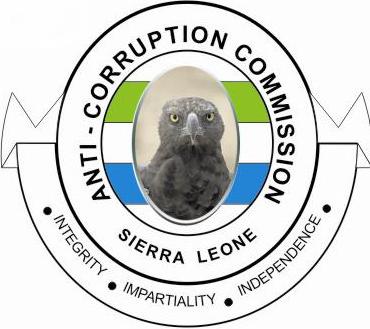By: Usman Fambuleh
Corruption has long plagued Sierra Leone, hindering its development and undermining the trust of its citizens. However, it is imperative to break this culture of corruption to pave the way for a brighter future. By addressing the root causes, implementing robust anti-corruption measures, and fostering a culture of transparency and accountability, Sierra Leone can overcome this pervasive issue and foster sustainable development.
Corruption in Sierra Leone has become deeply ingrained in society. This culture of corruption has eroded public trust, stifled economic growth, and hindered the delivery of essential services, such as healthcare and education.
To break the culture of corruption, it is crucial to address its root causes. This involves strengthening institutions, promoting ethical leadership, and enhancing the rule of law. By investing in education and awareness campaigns, Sierra Leone can foster a culture that values integrity and rejects corrupt practices.
It is important that Sierra Leone has established and enforced stringent anti-corruption laws and regulations. This includes creating an independent anti-corruption commission with adequate resources and powers to investigate and prosecute corrupt individuals. Additionally, implementing effective whistleblower protection mechanisms, like the one being implemented by the Anti-Corruption Commission, can encourage citizens to report corruption without fear of reprisal.
Transparency and accountability are vital in combating corruption. Sierra Leone should prioritize the digitization of public services, ensuring that government processes are accessible and visible to all citizens. By implementing e-governance initiatives and open data policies, the government can reduce opportunities for corruption and enhance public trust.
Civil society organizations and the media play a crucial role in holding the government accountable. Sierra Leone should continue to support and protect these entities, allowing them to operate freely and independently. By promoting investigative journalism and citizen engagement, the country can empower its citizens to actively participate in the fight against corruption.
Breaking the culture of corruption requires international cooperation and support. Sierra Leone should continue to collaborate with international organizations, such as the United Nations and World Bank, to access technical expertise, financial resources, and best practices. International partnerships can help strengthen anti-corruption efforts and ensure the sustainability of reforms.
Ultimately, breaking the culture of corruption in Sierra Leone requires a collective effort to build a culture of integrity. This involves instilling ethical values in the education system, promoting meritocracy, and rewarding honest and accountable behavior. By fostering a society that values integrity, Sierra Leone can create a sustainable future free from corruption. The ACC has tailored most of its programs to promote integrity not only in educational institutions but public offices as well.
Breaking the culture of corruption in Sierra Leone is a challenging but essential task. By addressing the root causes, implementing robust anti-corruption measures, enhancing transparency and accountability, and fostering international cooperation, Sierra Leone can pave the way for a brighter future. It is through collective efforts and a commitment to integrity that the country can overcome corruption and achieve sustainable development.




